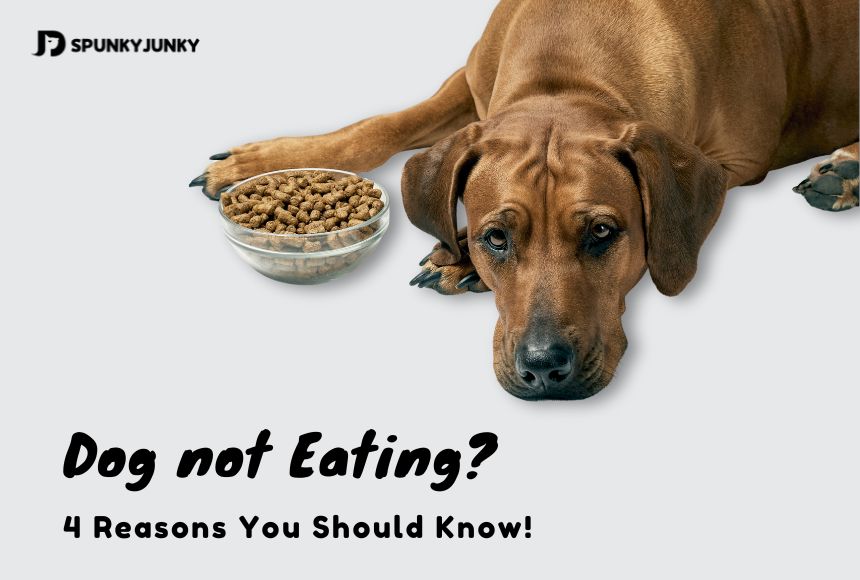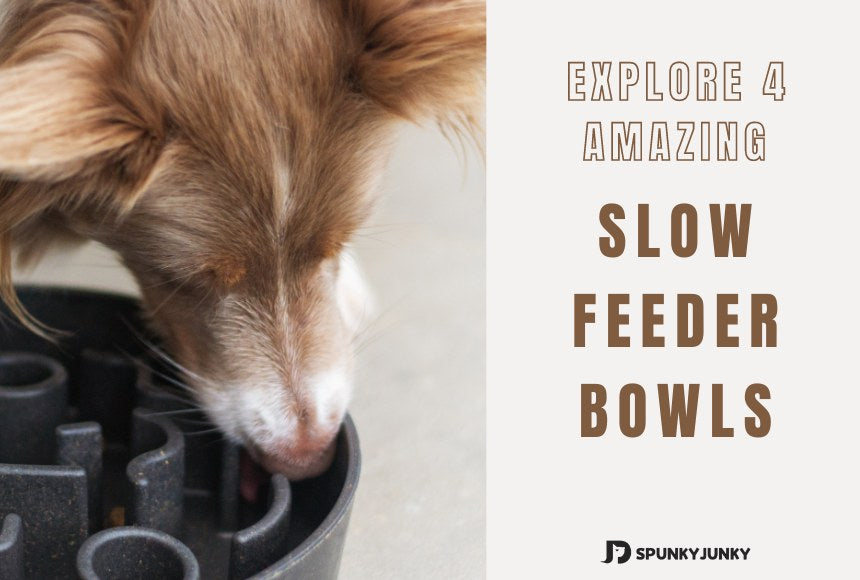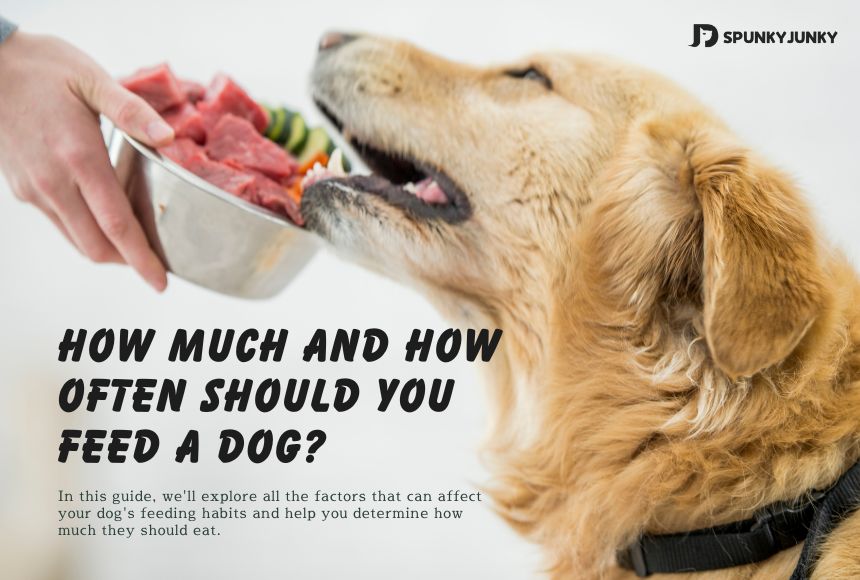Last Wednesday, we learned Can Dogs Eat Ice Cream?
Today we will explore a serious issue: why your dog not eating?
You may have more to worry about not eating than what your dog ate. When our dogs lack interest in food, this can have health implications.
But fear not!
In this article, we'll explore the common reasons why dogs not eating and offer practical solutions to stimulate their appetite. From fussy taste buds to medication side effects and emotional factors, we'll unravel the secrets behind your dog not eating.
So, if you're ready to unravel the secrets to getting your dog to eat more. Keep reading!
4 Common Reasons Why Dog Not Eating
1. Your dog doesn't like their food

The number one reason your dog not eating is that your dog doesn't like the food in the bowl, just like humans, dogs have their own preferences and tastes. If your dog keeps refusing to go near the dog bowl, it could be a sign that they find the food in the bowl unappealing.
Imagine eating the same meal every day for weeks on end. Eventually, you may start to crave something different or more exciting. The same goes for dogs. If they eat the same brand or flavor of dog food for a long time, they may get bored or not interested in it.
2. Your dog is experiencing side effects from a medication

It can be concerning and frustrating if your dog is experiencing side effects from medication and refusing to eat. Several reasons can contribute to your dog not eating when taking medication.
One common reason is that some medicines can make you sick or upset your stomach, which can make you lose your appetite. Another factor could be the taste or smell of the medication, which can be unappealing to dogs.
Additionally, some medicines can also change a dog's sense of taste or make it not want to eat for a while. If your dog has any of these side effects, you should talk to your vet to ensure they are healthy. They may be able to suggest other drugs, change the amount, or tell you how to make your pet like the taste of the medicine better.
Remember that if you know why your dog isn't eating as much while on the medicine, you can fix the problem and help them get better.
3. Your dog is feeling anxious or sad

If your dog is feeling anxious or sad, it can significantly impact its appetite. Like humans, dogs can experience emotional changes affecting their eating habits.
Anxiety or sadness can lead to your dog not eating. Dogs may refuse to eat if they associate certain scenarios or places with worry or bad feelings.
Additionally, changes in routine, separation anxiety, or losing a loved one can contribute to a dog's decreased appetite.
Creating a calm and welcoming space for your furry friend is important. This will give them encouragement and support during these hard times. But if your dog's lack of hunger lasts for a long time or is followed by other worrying signs, it's important to talk to a vet to rule out any health problems.
4. Your dog doesn't like their dog food bowl

If your dog not eating, one possible reason could be that they don't like their dog food bowl.
Believe it or not, dogs can have preferences regarding their feeding utensils. The bowl's type, size, shape, and material can all play a role in whether or not a dog finds it appealing.
For example, some dogs may dislike metal bowls because they make noise or feel cold to the touch. Others may have difficulty eating from deep bowls or bowls with narrow openings. It's important to watch how your dog acts when it's time to eat and think about whether their bowl might be a role.
Also, some dogs may have allergies to certain bowl materials or covers, so it's important to choose a safe, high-quality bowl for food.
What Should You do If Your Dog Not Eating
If your dog not eating, you should find ways to stimulate their appetite to encourage them to eat more.
Here are a few strategies you can try:
1. Offer High-Quality, Nutritious Food: Ensure that you're providing your dog with a high-quality diet that meets its nutritional needs. Look for food that uses real meat as the primary ingredient and is free from artificial additives or fillers. Dogs are more likely to eat food that tastes good and is packed with nutrients.
2. Add Warm Water or Low-Sodium Chicken Broth: Adding a small amount of warm water or low-sodium chicken broth to your dog's food can enhance its aroma and flavor, making it more appealing to them. This technique can be especially helpful if your dog has a diminished sense of smell or is recovering from an illness.
3. Feed Smaller, Frequent Meals: Instead of offering one or two large meals, try feeding your dog smaller, more frequent meals throughout the day. This approach can prevent your dog from feeling overwhelmed by a large amount of food and may increase their interest in eating. Monitor their portion sizes to ensure they get the right food each day.
4. Create a Positive Eating Environment: Minimize distractions during mealtime by providing a quiet and calm space for your dog to eat. Turn off the TV, reduce noise from other pets or family members, and create a peaceful atmosphere. Dogs may be more inclined to eat when they feel relaxed and undisturbed.
5. Buy a Dog Bowl That Your Dog Loves: Sometimes, dogs may be reluctant to eat because they don't like their food bowl. Consider purchasing a new bowl that suits your dog's preferences. Look for bowls with different materials, shapes, or designs to find one that appeals to your dog. Some dogs prefer shallow bowls, while others enjoy bowls with raised edges. Experiment and observe your dog's response to different bowls to find the one they love.
Stimulating a dog's appetite can be a multi-faceted approach. By implementing the strategies mentioned above, you can help boost their appetite and ensure they receive the necessary nutrition.
Conclusion
In conclusion, understanding why your dog not eating is critical to their health. By paying attention to your dog's needs and preferences, you can create a positive and enjoyable dining experience for them. A healthy appetite not only ensures they get the nutrients they need, it also strengthens the bond between you and your beloved pooch.
For more helpful tips and information on caring for your dog's health, don't forget to browse our other blogs. We provide abundant resources to make your dog grow up happily and healthily.






